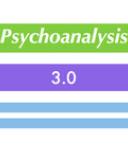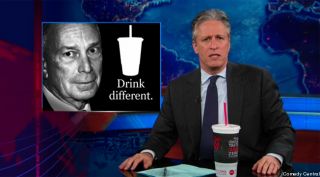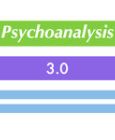
Diet
"Emotional Thirst" Absent From the Debate About Obesity and Sugar Drinks
Deep, irrational emotions organize what and how we gulp
Posted June 20, 2012
By Janet Tintner, Psy.D.

A recent ad takes us down a supermarket aisle with a woman placing a super-sized bottle of soda (aka, pop) in her cart. At check out she woefully tells us she does not want government taking away her precious liquid. When talking heads then pontificate about these ads, they decry the influence of corporations in making us long for bubbly sugary water in green bottles. Astonishingly, absent from the debate about banning or limiting soda portion-sizes in the fight against unhealthy obesity is any reference to psychology and feelings.
But maybe it is not so astonishing. Both individually and collectively it is hard, really hard, to grapple with what is so gripping about soda. Or actually, so compelling about sugar, since it is widely identified as a primary culprit in the obesity epidemic.
Why doesn’t the woman from the ad cheerfully open her kitchen tap and fill up a bottle with water? Or pull a bottle of water off the shelf? Well, the commercial is paid for by the beverage industry! If the ad, or the problem, were about thirst-—actual thirst—water would do. But drinking soda is not about being thirsty.
Soda is about an emotional need. For many, to be without soda feels like deprivation. While water satisfies actual physiological thirst, soda fulfills emotional thirst. Or, at least it does in the moment, and for a moment. Soda can touch what is deep, irrational, and emotional in a way that water does not.
Some of my overweight clients have recently tried cutting out sugar. They describe a variety of motivations: a life threatening medical crisis, problematic sugar or insulin levels in blood work, a sense of sluggishness, urgently needing to nap during the day, being unable to run round the playground with a child, hearing a physician’s warnings on television.
Often, when someone successfully cuts out refined sugar their cravings decline significantly. Some people gain control of their eating when sugar’s temptation is out of the way. But it’s not easy. When I ask clients to imagine forgoing the doughnut or the ice cream, they often react, at least initially, with anxiety, sometimes horror, and often despair at the anticipated loss. However, if they cut the sugar, after a while, they can feel the relief that accompanies diminished craving.
The idea of moderation—you can have whatever you want in limited quantities—foundational to commercial weight loss programs, is often more palatable than giving up specific foods. The idea of giving something up (or banning it) evokes enormous resistance. However, for some, moderation may not be effective. Strategies must be tailored to the individual.
In therapy, I explore the emotional function of food, asking clients to talk about the feelings that come up when the craving for their favorite sugary treat clamors most insistently. Everyone has their own story, but food is often connected to comfort in the face of unbearable feelings in relationships.
Seething, after a tough day of being publicly scolded by an incompetent boss, it is impossible to walk past the cupcake store without going in for that luscious, soothingly moist and creamy, double chocolate chip cupcake with peanut butter icing sprinkled with walnuts. The anger and humiliation feels so overwhelming that the only way to get through the moment, and indeed the night ahead, is that cupcake’s comfort. In the midst of suffering emotionally, the cupcake, cookie or ice cream provides solace.
In the moment, and in the company of an additional red velvet cupcake, the rage at that idiotic boss may temporarily go away. But the problem remains, and so do the feelings. If you can’t find another way to cope, the notion of giving up the cupcake is awful. It represents forsaking the only pleasure in a sea of misery. For this reason the feeling of being without the designated sugary solution can feel like a tremendous loss. Though, of course there are other ways to cope.
One problem is that it doesn’t usually stop with that one cupcake going home at the end of a terrible day. Getting up and going to work the next morning still feels bad. So, on the way to the subway, you no longer fight the urge to go into the doughnut store you have been successfully resisting for a while. There’s a jelly doughnut in there with your name on it.
Not surprisingly, the feeling that food alleviates suffering or distress stems from the earliest days when all experience is in the body and food is the primary source of comfort and connection. This succor is primal, located in the deepest, least accessible stratum of being and experiencing.
When people are able to resist going into the cupcake store or the ice cream parlor, strong feelings may emerge. Feelings and memories related to loneliness, alienation, isolation and separation. These emotions may be difficult to bear, but, when explored, there may also be relief at the unexpectedly diminished temptation to indulge.
Does that mean everyone needs to get in touch with their feelings in order to deal with obesity? Of course not. But it does help us think about what makes why this problem is so entrenched and intractable. This way of thinking should be included in the debate.
A little interest in understanding our emotional worlds might be as refreshing as that tall glass of cool water. It might actually satisfy some of our thirsts, those in the body, as well as in the psyche.
---------
About the Author:
Janet Tintner, Psy.D. is a graduate of the William Alanson White Institute where she is a Supervisor of Psychotherapy. She also teaches and supervises in the Eating Disorders, Compulsions and Addiction Service at the White Institute. She is private practice in New York City and has a specialty in obesity and Bariatric Surgery.
© 2012 Janet Tintner, All Rights Reserved
http://www.psychologytoday.com/blog/psychoanalysis-30
.



